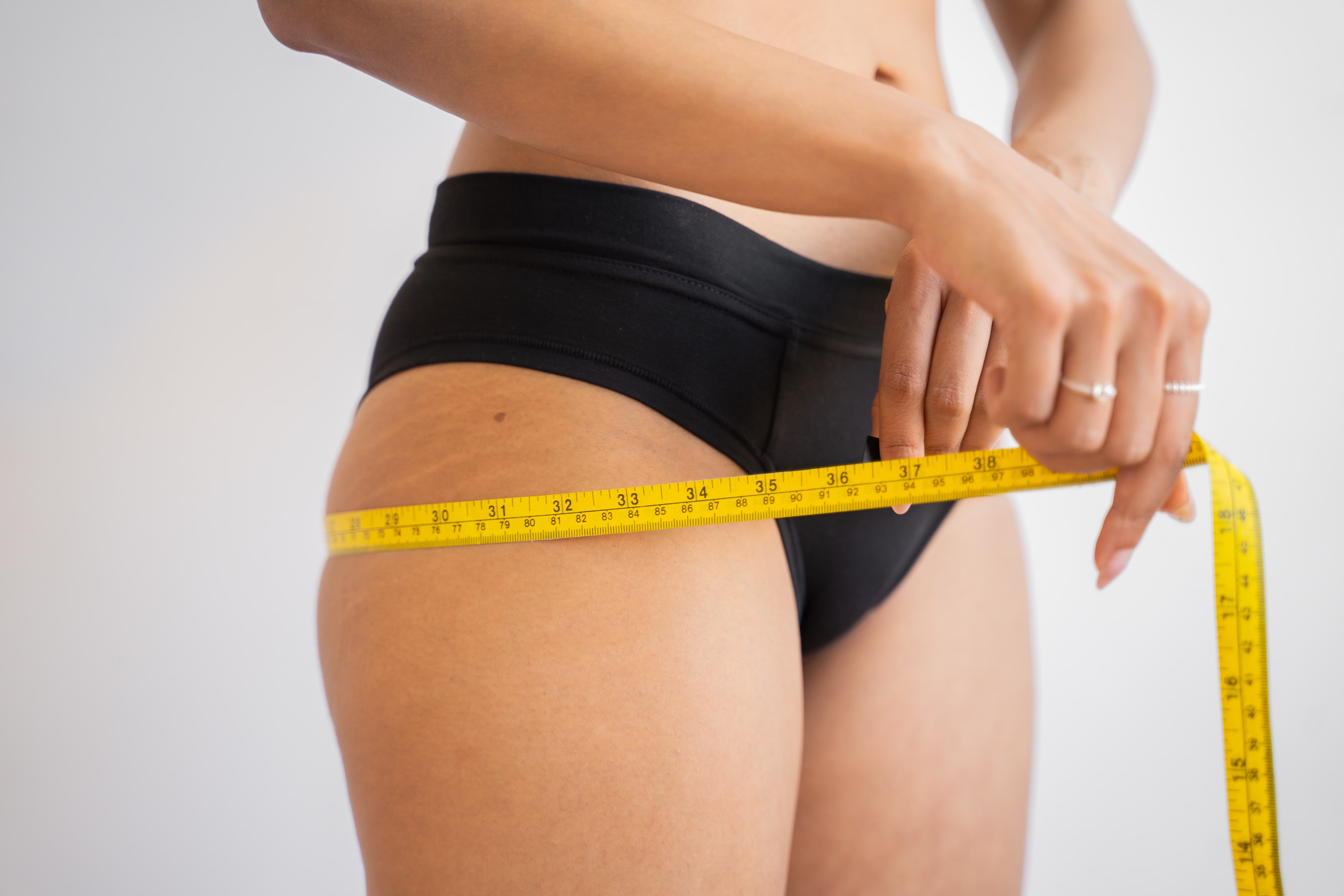I walked out of the fitting room with tears streaming down my cheeks, hoping no one inside Saks Fifth Avenue would notice me.
After trying on every bathing suit in my size in anticipation of an upcoming vacation, I couldn’t find one that looked good. I either had an embarrassing gap between my boobs and the suit’s cups, or there was no gap but I looked like a pre-teen in a training bra.
As I made a beeline to the exit, I accidentally stumbled into the junior section. My eyes fixated on a strategically placed rack of heavily padded options. Because I needed something for my destination, I forced myself to select two that were just good enough. But I couldn’t shake the shame and stressful feelings of being an adult buying bathing suits meant for high-schoolers.
My whole life has been a never-ending pity party in the body image department. It started in grade school. It seemed we all left fifth grade flat-chested, but most came back to grade 6 with boobs and hips and booty. Not me. I thought okay, I’m just a late bloomer, my time will come. I prayed to God about my misfortunes and faithfully did “I must” exercises to increase my bust.
While waiting for my metamorphosis, like a flat-chested caterpillar eager to turn into a buxom butterfly, I’d come across articles or stories about body types. My linear shape, no hips or boobs, is typically referred to as athletic or boyish. Yet in school, I was a master at creatively cheating my way out of gym class. I would routinely sneak books into the classroom to read instead of paying attention. And I possess an unironic love of the color pink and anything that sparkles. I was neither boyish nor athletic – cue cognitive dissonance.
Then came the people who cruelly described men who prefer my body as pedophiles or closeted. The message was loud and clear. No normal, heterosexual man could possibly want a woman who looked like me. I always had a healthy share of male attention, so I started to over-analyze past and present admirers and boyfriends. I quickly dismissed the insinuations, but it didn’t hurt any less.
Next, people started calling women shaped like me little girls playing dress-up. Notable famous examples include Selena Gomez and Ariana Grande. It is sad to see grown women mocked for their natural shapes juxtaposed with waist-trained, surgically-enhanced Instagram models upheld as the saucy alternative.
The change I prayed for never came. Not in grade school, not in high school, not in college. By the time I graduated from law school, I had accepted my tragic fate. I would depart this earth as a curveless member of the Itty Bitty Titty Committee. Then the body positivity movement arrived. And I thought I could finally fit in somewhere.
Surely body positivity meant all women were included. But it became clear very quickly that the movement wasn’t really for me. Real women have curves. Doesn’t include me. Men like a little something to hold onto. Nope, not me. Be proud of your bootylicious booty. I love Beyonce, but no, that does not include me either.
I am naturally thin and don’t diet or exercise to maintain my frame. But, I’ve had to perform the emotional labor of politely dealing with people who suggest the wind will blow me away or “go eat a burger.” I feel compelled to create curves with wardrobe choices. I can’t buy certain tops or lingerie because I don’t fill the cups. And as a mother who exclusively breastfed my children, I endured people ignorantly telling me that my babies would starve if I didn’t give them formula.
Those things may seem trivial, but it’s not any less emotionally distressing than it is for someone on the other side of the spectrum. I have a friend who adores the whole flat-chested Parisian girl aesthetic and wears tops that show off her silhouette. To me, she’s a beacon of body positivity … tres magnifique! And although I’ve accepted my flat chest and lack of curves as part of my existence, I don’t think I will ever reach the same point.
I am still boobless and curveless, even though I’ve gained a bit of weight from my praying grade school days. But I am wiser now, and fitting room experiences no longer make me cry. Instead, sexy lingerie has been an amazing and fun boost to my confidence. But I struggle with loving my body just like most women do.
I am hopeful that more people in the body positivity community will be guided by the words of life coach Susie Moore. “Remember that every other person you might possess envious feelings toward is just a human, like you. You don’t know their problems, struggles or the behind the scenes of their life.” She was not discussing body positivity specifically but I think she’s 100% on point.
Body image issues, body dysmorphia, disordered eating, and crippling self-doubt affect women of all sizes. I am hyper-aware of the thin privilege I have and wouldn’t dream of diminishing plus-sized women’s struggles. But I kindly ask that people also not diminish mine. If body positivity is meant to be inclusive, then it shouldn’t exclude women like me. We are real women, too.


